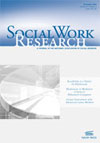 Teen courts, also called youth courts and peer courts, are an increasingly common intervention used to divert youths with minor offenses from the juvenile justice system. Teen courts, as a diversion option, are generally not part of the juvenile court, but, rather, function as alternatives to formal court processing. Successful participation usually means that youths exit teen court programs without an official juvenile court record. Teen court practices vary considerably among jurisdictions, but their common feature is the use of adolescents to hear cases or make decisions. Like other so-called specialty courts, teen courts tend to be local bodies promoted by the judiciary rather than the legislature and supported by diverse funding streams, with small caseloads, local variability, and an emphasis on individualized sanctions and supportive services.
Teen courts, also called youth courts and peer courts, are an increasingly common intervention used to divert youths with minor offenses from the juvenile justice system. Teen courts, as a diversion option, are generally not part of the juvenile court, but, rather, function as alternatives to formal court processing. Successful participation usually means that youths exit teen court programs without an official juvenile court record. Teen court practices vary considerably among jurisdictions, but their common feature is the use of adolescents to hear cases or make decisions. Like other so-called specialty courts, teen courts tend to be local bodies promoted by the judiciary rather than the legislature and supported by diverse funding streams, with small caseloads, local variability, and an emphasis on individualized sanctions and supportive services.
The driving idea behind teen courts is that teens in general respond well to social learning, and that restorative, rather than punitive, justice is more likely to lead to better behavior in the youths going forward. Teen participants, it is thought, are more likely avoid the stigmatizing “delinquent” label, and with it a harmful life trajectory.
But do teen courts work?
A recent study of teen courts by Charlotte Lyn Bright, PhD, MSW, Douglas W. Young, MS, Melissa L. Bessaha, MA, LMSW, and Benjamin J. Falls, MA, has been published in the September 2015 issue of Social Work Research. The researchers studied urban, suburban, and rural teen courts in Maryland. Data used in this study were drawn from three sources: (1) information recorded in program databases kept by the three teen court programs, (2) official record data maintained by the state juvenile justice agency, and (3) individual interviews with youth respondents and their parents or other caregivers. The study was approved by two institutional review boards.
In a nutshell, the study found that when the teens completed the teen court “sentences” (e.g., the court mandated community service hours) in the specified time-frame, there was a much less chance for recidivism on the teens’ part. The teen courts have worked.
Naturally, these findings have implications for social workers. The researchers state:
Together, the quantitative and qualitative findings suggest that teen courts have the potential to address the needs of low-level offenders. Social workers and allied professionals might, therefore, consider developing or strengthening teen courts through policy development and using teen court in their practice with youth offenders. [Research] has suggested that social workers have the potential to advance the field of juvenile justice through advocacy and planning for appropriate services, including diversion programs that are supported by evidence, particularly services that address multiple risk factors and provide an alternative to punitive sanctions. Social workers, with their knowledge of complex youth, family, and community needs, could be ideal teen court administrators. In the context of the recent expansion of teen courts as an intervention…, social work’s role in these programs could be enhanced. Given concerns about continuing reliance on ineffective interventions in juvenile justice…, social workers have an incentive to increase the availability of and access to services with positive outcomes, and the ability to engage families could be a step in the right direction.



